Managing kidney disease can feel overwhelming, but having a clear plan can make all the difference. In this article, we'll explore essential components of a kidney disease management plan, from dietary adjustments to regular monitoring of your health. Understanding these steps can empower you to take control and lead a healthier life. So, grab a cup of tea, settle in, and let's dive deeper into effective strategies for managing kidney health!
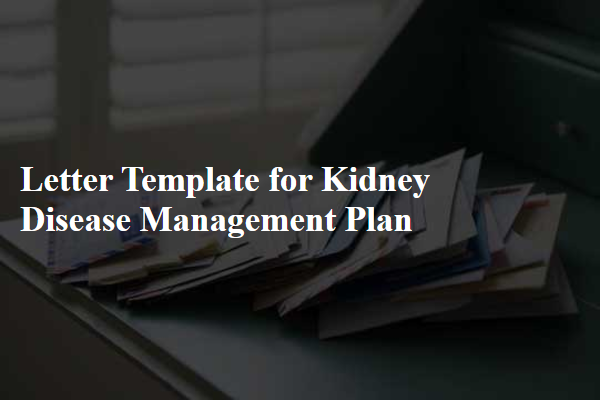
Personalized patient information
A kidney disease management plan comprises several crucial elements tailored to the individual's medical history and current health status. This includes baseline information like estimated glomerular filtration rate (eGFR) values, which measure kidney function and help determine the stage of chronic kidney disease (CKD). Comprehensive assessments often involve laboratory tests, including serum creatinine and blood urea nitrogen (BUN), to monitor kidney health. Lifestyle modifications play a significant role, encompassing dietary recommendations such as sodium reduction to lower blood pressure and protein intake adjustments to minimize kidney stress. Medication regimens, potentially involving antihypertensives or phosphate binders, should also be personalized to enhance treatment efficacy. Regular follow-ups with healthcare providers in facilities like nephrology clinics are essential for ongoing evaluation and adjustment of the management plan.
Detailed treatment regimen
A comprehensive kidney disease management plan requires a detailed treatment regimen that emphasizes dietary changes, medication adherence, and regular monitoring of kidney function. A potassium-restricted diet, typically consisting of less than 2,000 mg of potassium per day, is essential to prevent complications associated with hyperkalemia, a condition common in chronic kidney disease (CKD) patients. Medication adherence often involves the use of angiotensin-converting enzyme (ACE) inhibitors, particularly Enalapril, which help in managing blood pressure, a vital aspect of kidney health. Regular blood tests, including serum creatinine and glomerular filtration rate (GFR) assessments, should be conducted every three months to evaluate kidney function and adjust the treatment regimen accordingly. Lifestyle changes, such as engaging in moderate physical activity for at least 150 minutes weekly and quitting smoking, can significantly enhance the quality of life and slow disease progression. Comprehensive patient education regarding recognizing symptoms of worsening kidney function, including fatigue and swelling, is also crucial for timely interventions.
Diet and lifestyle recommendations
Kidney disease management emphasizes the importance of a balanced diet and healthy lifestyle choices to support kidney function. Key dietary recommendations include a low-protein intake, ideally between 0.6 to 0.8 grams of protein per kilogram of body weight daily, which can reduce the workload on the kidneys. Sodium restriction to less than 2,300 milligrams per day is crucial to control blood pressure and reduce fluid retention. Incorporating fresh fruits and vegetables, while avoiding high-potassium foods such as bananas and avocados, is essential to manage potassium levels. Hydration should be monitored closely, with fluid intake tailored to individual needs, especially for patients undergoing dialysis. Regular exercise, such as brisk walking for at least 30 minutes on most days, can improve cardiovascular health and help maintain a healthy weight. Routine check-ups with healthcare providers and monitoring of blood pressure and blood glucose levels play a vital role in managing kidney health effectively.
Monitoring and follow-up schedule
A structured kidney disease management plan is essential for patients with chronic kidney disease (CKD). Regular monitoring involves assessing kidney function through blood tests measuring creatinine levels and estimated glomerular filtration rate (eGFR). In addition, routine urine tests can detect proteinuria, a critical indicator of kidney health. Appointments should occur every three months to evaluate these parameters, alongside blood pressure readings. Specific dietary adjustments may be recommended based on individual test results, such as limiting sodium intake and ensuring adequate protein levels. Furthermore, patient education sessions should emphasize the importance of medication adherence, especially for those prescribed medications like angiotensin-converting enzyme (ACE) inhibitors to protect kidney function. A follow-up schedule should also incorporate assessments for potential complications, including anemia and bone mineral disorders, requiring collaborations with a nephrologist.
Emergency contact and support resources
Emergency contact information is crucial for individuals managing kidney disease, especially for urgent situations requiring immediate assistance. Primary care physicians, such as nephrologists specialized in kidney health, should be listed with their direct phone numbers for prompt communication. Local emergency services, like 911 in the United States, must be noted for severe health issues related to kidney function, including symptoms like sudden swelling or extreme fatigue. Support organizations, such as the National Kidney Foundation (NKF), provide resources and counseling (including toll-free helplines available 24/7) for patients and families dealing with chronic kidney disease. Local support groups or community health centers can also offer emotional support and valuable educational workshops on disease management. Always keep an updated list of medication allergies and ongoing treatments, as this information is vital for emergency personnel in critical situations.

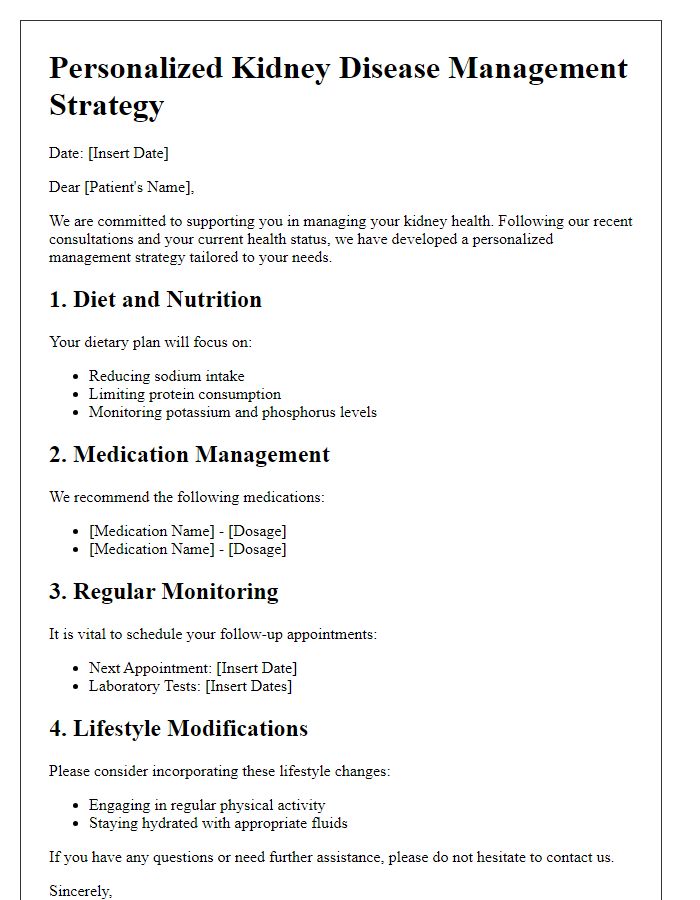
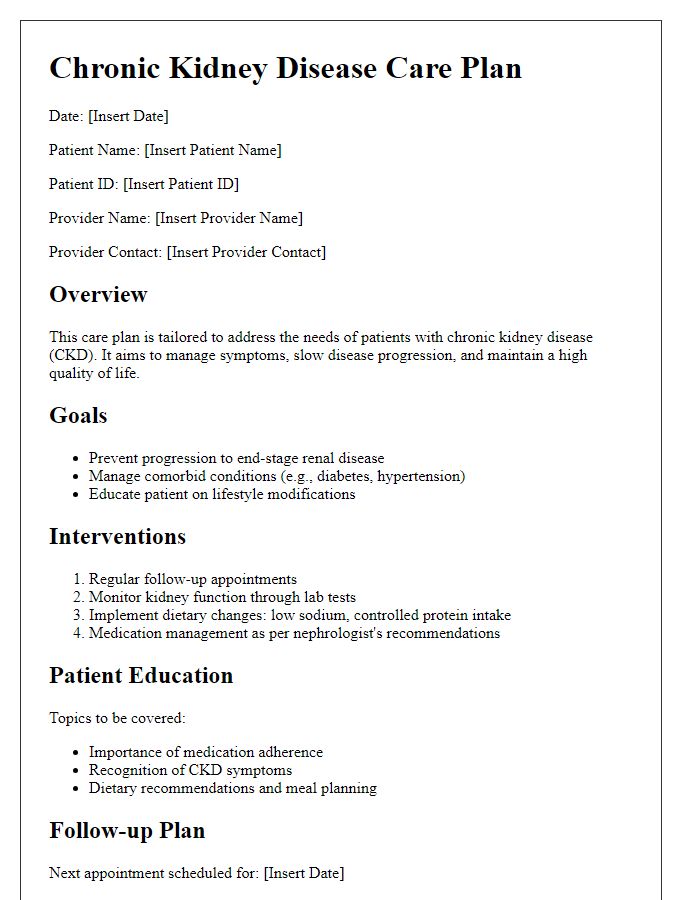
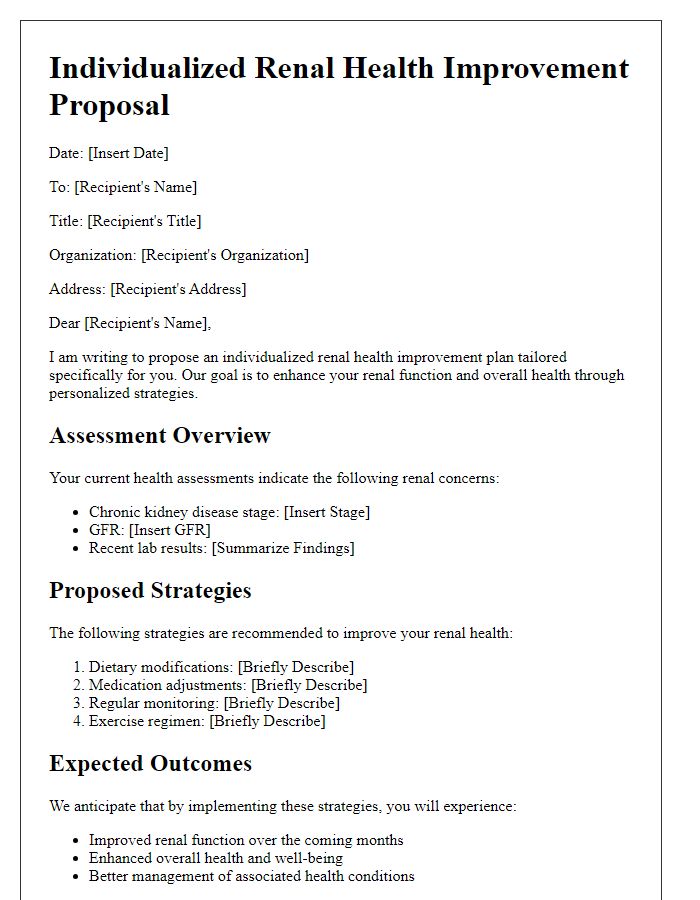
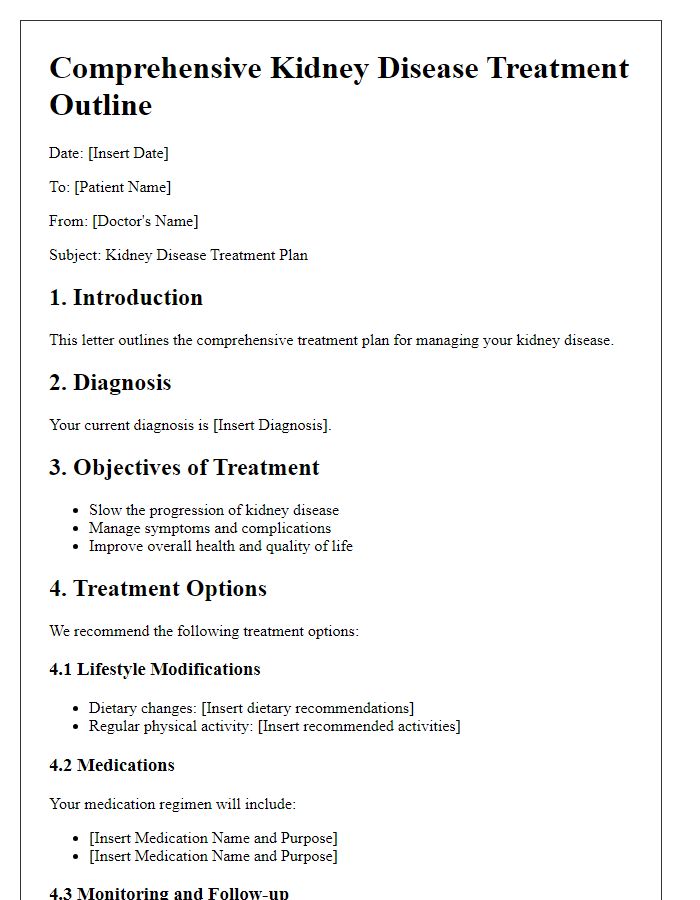
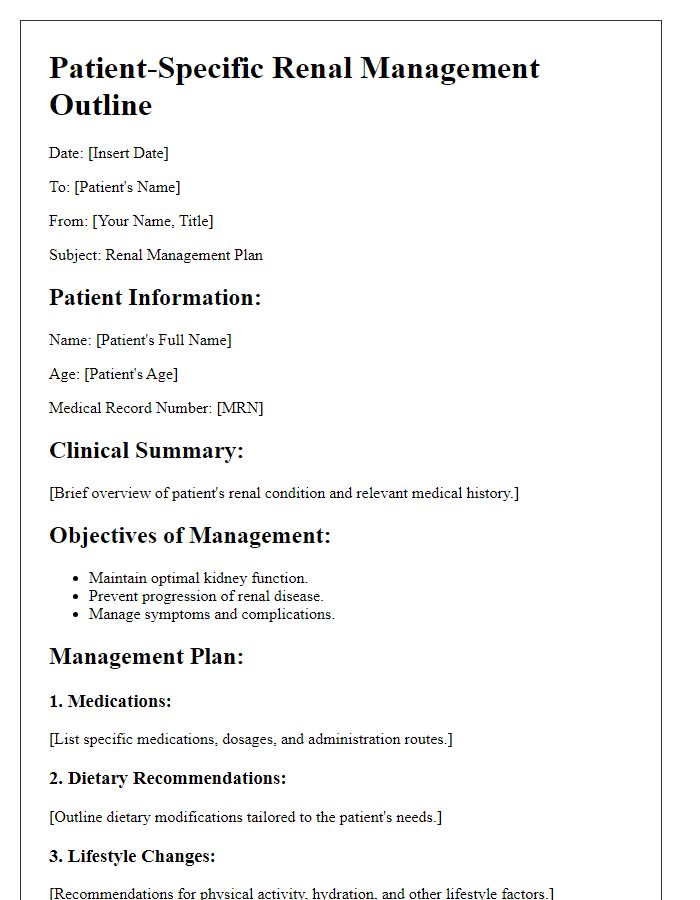
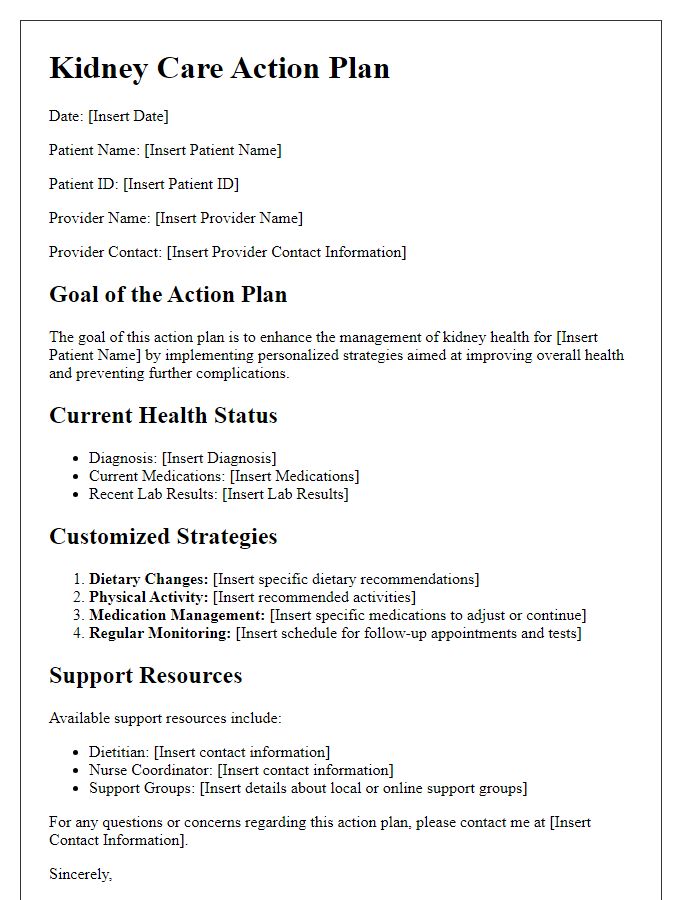
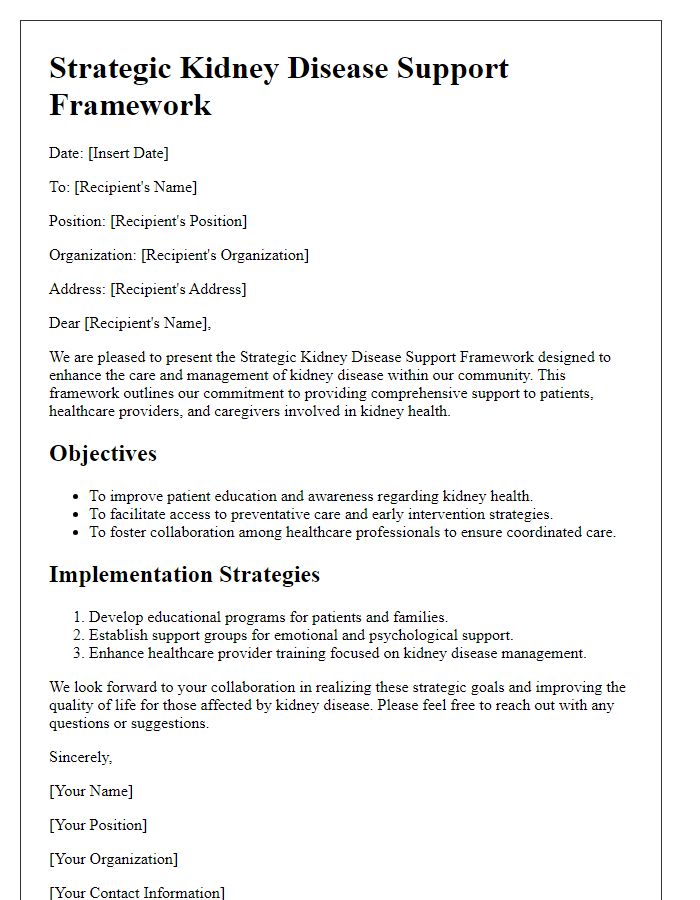
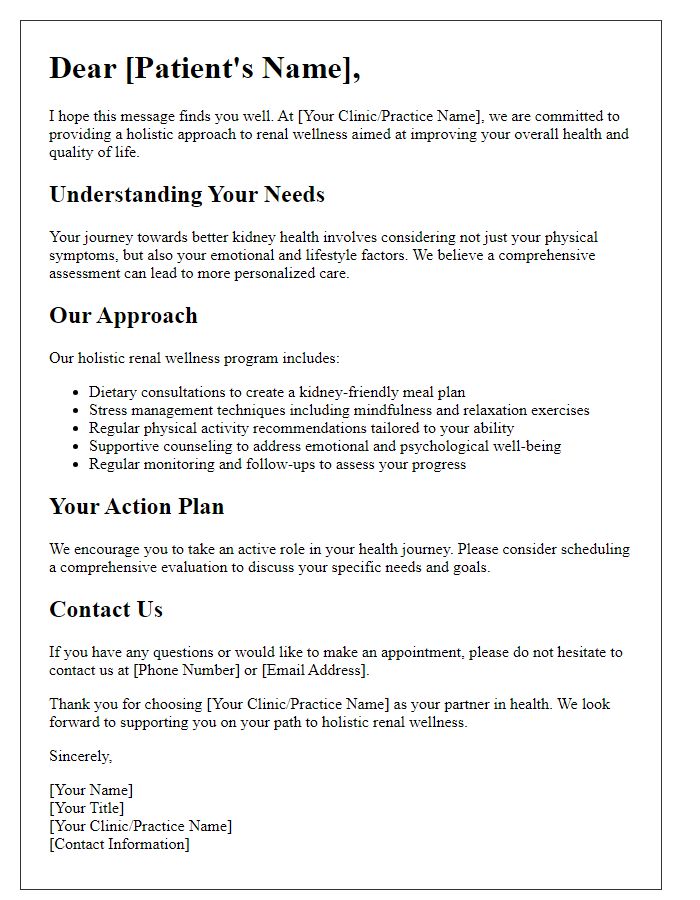
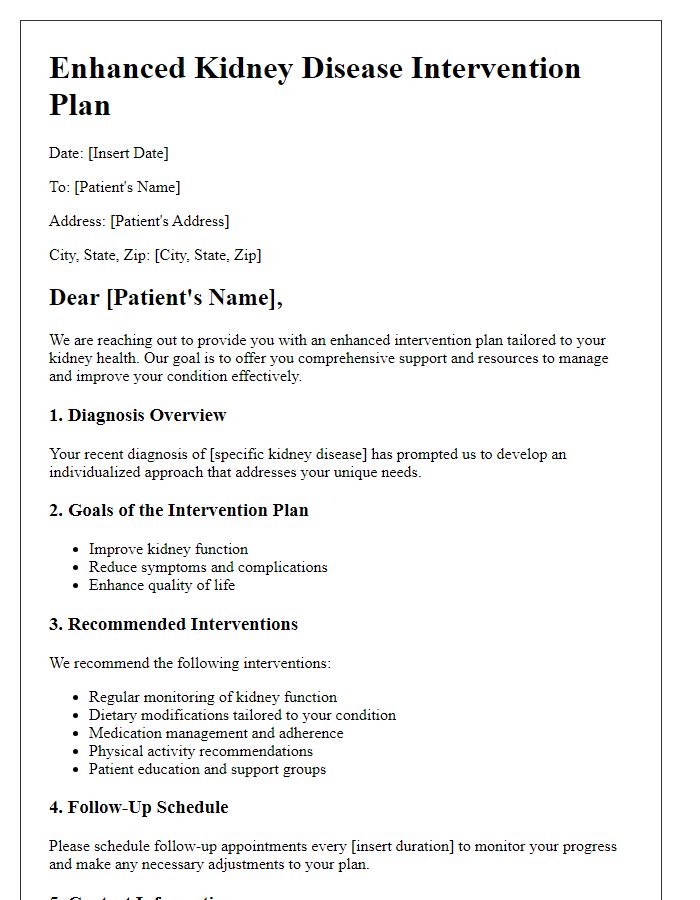
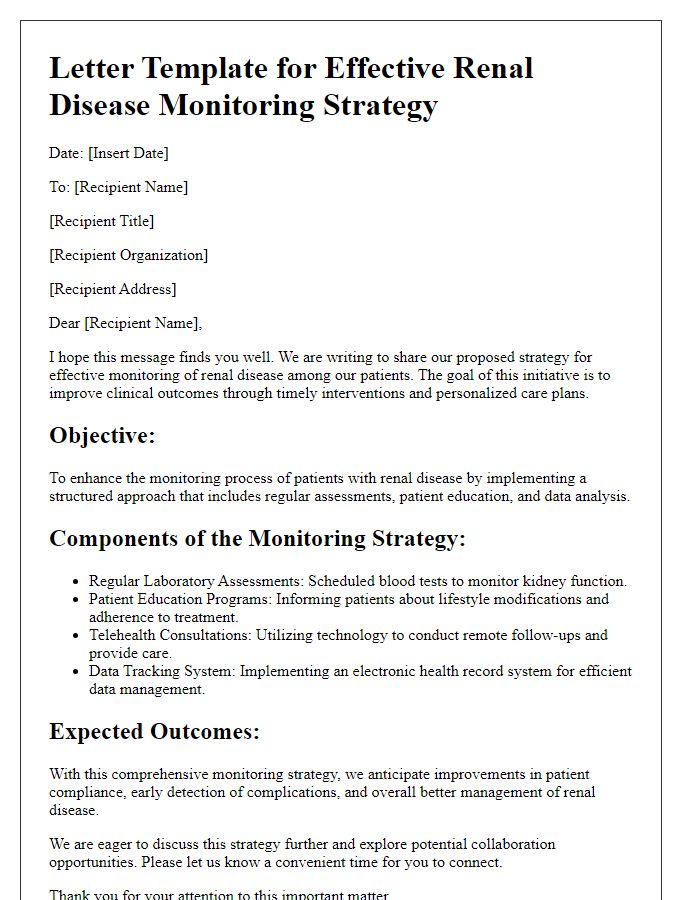


Comments